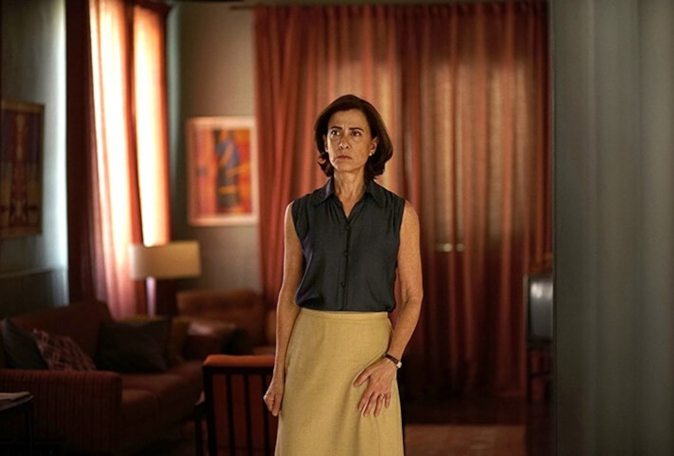Nearly five months after its release in Brazil, Walter Salles’ I’m Still Here is making waves among cinephiles and industry professionals all over the world. The success was to be expected — Salles has a wide repertoire of outstanding projects ranging from Central Station to Foreign Land. But the sheer scope of the acclaim seen in I’m Still Here has exceeded expectations.
Since its premiere at the Venice Film Festival with a standing ovation of nearly ten minutes, the poignant film has garnered significant media attention, numerous nominations, and international awards — including Fernanda Torres Golden Globe for Best Actress in a Drama. Now, Torres’ is up for an Oscar for Best Actress at the 97th Academy Awards. But then, Salles’ production is not just another international film that is competing in the hectic world of Hollywood.
Based on author Marcelo Paiva‘s homonymous memoir, the biographical drama, set in 1970s Rio de Janeiro, follows Eunice Paiva (Torres), whose life and her kids’ are turned upside down when her husband, Rubens (Selton Mello), an ex-congressman, is taken away by the military after they overthrow the government. Between keeping her head up, taking care of her children, and seeking justice for her husband, Eunice maintains a resilient attitude that is evident throughout the film since Rubens’ disappearance. The pain in Torres’ character is real — because she represents thousands of Brazilians who still haven’t found the bodies of their loved ones.

People disappeared. They were found neither alive nor dead. And the uncertainty haunted their families. The despair of having lost them, together with the hope that they might still be here, has guided their existence ever since. According to the National Truth Commission (CNV), there have been 434 political deaths and disappearances, although investigations have shown mixed results.

In an interview for Vanity Fair, director Walter Salles opens up about how Brazil and its cinema have lived under censorship. “Stories such as this could never have been told at that time,’’ the filmmaker explains, noting that this also applies to the last few years, during Jair Bolsonaro’s presidency between 2018 and 2022.
The ex-president, who had an authoritarian agenda and was recently indicted by the Federal Police (PF) for attempted coup d’état and other crimes, openly praised the military dictatorship and even spat on the tribute statue of former federal deputy Rubens Paiva, saying that he “deserved what he got.” While right-wingers are still celebrating this violent era, the new government has been raising awareness of this dark period of time — one of their objectives is to launch a free streaming platform with national films such as I’m Still Here.

Through its portrayal of the damage done by this authoritarian regime, marked by military aggression, censorship, and the imprisonment, torture, and murder of those who opposed the system and whose bodies were never seen again, the impact of I’m Still Here goes beyond the screen. Its significance lies in the way the story speaks to many people in Brazil and other Latin American countries that have endured similar military regimes — but not only there.

In a world where we see Donald Trump back to the U.S. presidency with his prejudiced, odious anti-immigration agenda, tech leaders like Elon Musk and Mark Zuckenberg aligned with right-wing extremist policies, and personalities like Kanye West promoting hate and fascist ideologies online, a film that serves as a concise representation of the dangers of authoritarianism speaks loudly.
By bringing attention to the dangers of authoritarian regimes and inviting audiences to contemplate the many negative after-effects of dictatorships, I’m Still Here achieves global relevance. It allows us to look at a troubled past while also looking at an unknown future, while simultaneously prompting the discussion on how Latin American stories matter and how they have a seat in the international entertainment and artistic industry.

As a strong stimulus for reflection on a particular community, a particular era, and the people who lived through it, cinema must have pictures that speak to our history and its wrongdoings, therefore ascending as a socio-political manifestation and a vehicle that effectively makes changes.

